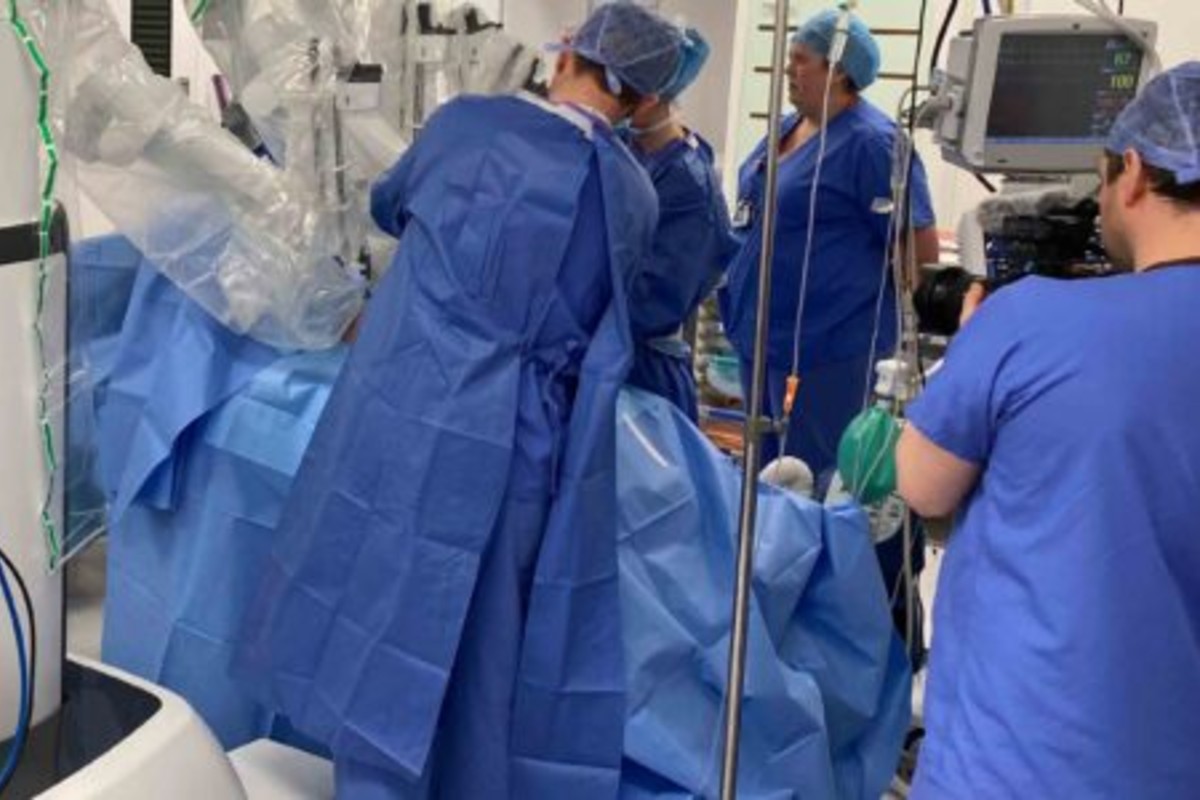The service means patients can be seen faster, as teams triage them quickly through the NHS App and let them book in scans at times that suit them at community diagnostic centres closer to home.
When a patient has an appointment with their GP, they will have the option of being referred to the online hospital for their specialist care. They will then be able to book directly through the NHS App and have the ability to see specialists from around the country online without leaving their home or having to wait longer for a face-to-face appointment.
If they need a scan, test or procedure, they'll be able to book at a time that suits them at community diagnostic centres closer to home. They will be able to track their prescriptions and get advice on managing their condition from their homes.
Initially, the focus will be on a small number of planned treatment areas with the longest waits. Over time, this will be expanded to more treatment areas. Treatment areas will only be offered if the NHS knows it is clinically safe to do so remotely.
In the first instance, the service will build and scale tried-and-tested innovations already in place across the country, such as AI and remote monitoring, with millions of patients already accessing online appointments and using the NHS App to manage their care.
Sir Jim Mackey, NHS chief executive, said: 'This is a huge step forward for the NHS and will deliver millions more appointments by the end of the decade, offering a real alternative for patients and more control over their own care.
'Patients who choose to receive their treatment through the online hospital will benefit from us industrialising the latest technology and innovations, while the increased capacity will help to cut demand and slash waiting times.
'The NHS can, must and will move forward to match other sectors in offering digital services that make services as personalised, convenient, and flexible as possible for both staff and patients.'
The first patients are expected to start using the service from 2027.
Response
Rory Deighton, acute and community care director at the NHS Confederation, said: ‘Offering this choice, through the NHS App, also aligns with the government's 10-Year Health Plan aspiration to move patient care from analogue to digital over the next decade.
‘However, the devil will be in the detail in terms of how this service is offered to patients through the primary care front door, as well as ensuring that this does not widen the gap for those who are digitally excluded.
‘Addressing workforce capacity gaps both in primary and secondary care, as well as how patient data will be used, will also be important if this model is to thrive as an addition to traditional face-to-face elective care.'
Dr Becks Fisher, director of research and policy, said: ‘Bringing digital care approaches together through a new ‘online hospital' is an interesting experiment. This will build on existing digital tools used widely in general practice and for some hospital services like ophthalmology and dermatology.
‘It is sensible to give patients a free choice to opt in or out of these new digital services. This should mean that the NHS will not shut out those who want care in person. But there are some difficult questions looming about how this new service will be implemented: will doctors and nurses for this service be able to take on this work without it impacting on existing face-to-face work? And how will they pass patients who need care from digital to physical services?
‘This service will only be safe and suitable for certain patients. How will we make sure it is kept to them? There is a risk that those who meet this standard will be mostly the relatively healthy, and those with the digital literacy to choose.
‘Then there is the knotty question of how the NHS will pay for this, and whether that covers GPs taking part as well as outpatient hospital services. The centrally directed nature of this will push aside some local experimentation.'
Louise Ansari, chief executive of Healthwatch England, said: ‘We welcome this model, which offers the prospect of patient referrals being triaged more quickly and some patients getting scans and diagnostic tests sooner. It is also welcome that government has committed to working with Healthwatch and patient groups on its delivery.
‘It will be key, for example, that all patients have an equal opportunity to benefit, not just those who are tech-savvy. The public will need clear communication about how to benefit and access from this scheme – including support, if required, to sign up to and use the NHS App. And digitally excluded people will need reassurances that their local physical hospital remains a good option for their care.'
Dr Jeanette Dickson, chair of the Academy of Medical Royal Colleges, said: ‘This is a novel and potentially game-changing way of improving equity and speed of access to NHS services, which would reduce health inequalities.
‘Obviously, we need to make sure that those who aren't digitally enabled are not penalised in any way, but if this approach can be delivered safely and effectively, freeing up capacity in bricks and mortar hospitals at the same time then it could potentially be a really good thing.'



